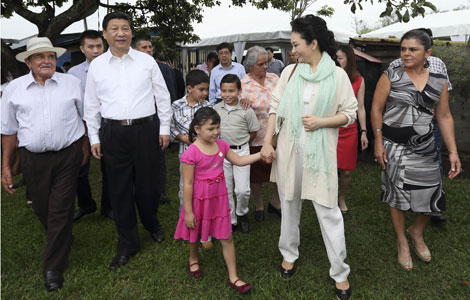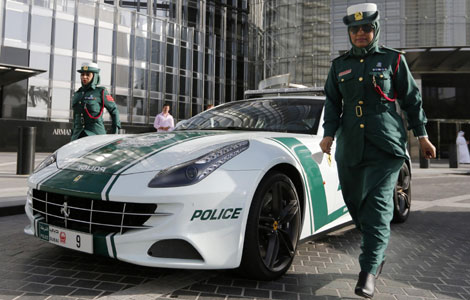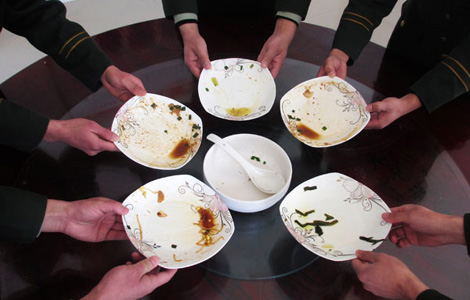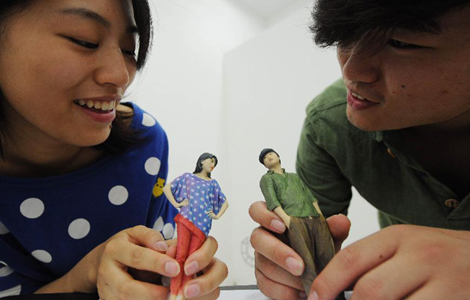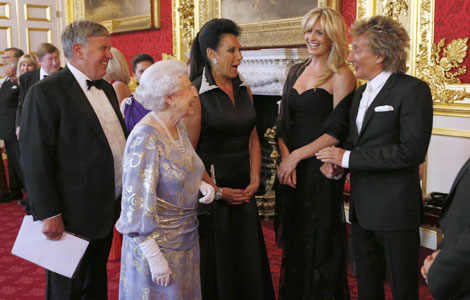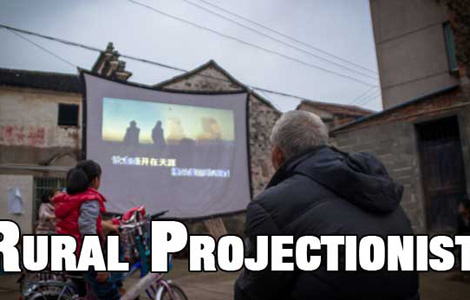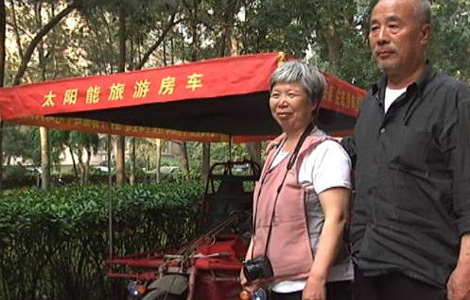First month of leadership
Updated: 2013-04-16 08:03
By Chung-yue Chang (China Daily)
|
||||||||
How is China's new leadership, led by President Xi Jinping and Premier Li Keqiang, doing? To begin with, Xi and Li have projected a distinctly fresh style of governance, which the world media have lauded, because it portends the coming of a new benchmark for good governance.
The two leaders have two things going for them. They are secured in and supported by the achievements of their predecessors. And since they are already seasoned and do not have a new job-learning curve ahead of them, they have been able to put together the necessary talents and priorities to set the nation in a new direction.
Xi has focused on international affairs, visiting Russia, Tanzania, South Africa, the Republic of Congo, and attending the fifth BRICS summit in Durban. Then, as a natural multilateral diplomatic sequel, he met a host of key international leaders at the 2013 Boao Forum for Asia in Hainan province.
Li has focused on key domestic issues and government affairs. Members of the country's top legislature have focused on planning, conducting key research tours to relevant domestic regions. Thus, from top to bottom, everybody is in action.
That Xi chose to visit Russia and Africa on his maiden tour as president is of special significance. It exemplifies how China, a major developing country, can best relate, through mutual development, to all nations, developed as well as developing.
Thus "seeking development for all", the theme of the Boao Forum for Asia, is most descriptive of Xi's diplomatic debut. Delivering a keynote address at the forum, Xi said "neighbors wish each other well" and "promoting good neighborliness is a time-honored tradition of China". China relates to all nations for mutual development through peace, equality, and mutual respect and independence, he said.
China and Russia have built a strong foundation of strategic mutual trust and support, which will help them expand their practical cooperation while keeping to their respective development paths and social and political systems. During Xi's visit to Russia, 32 cooperation agreements, termed by both sides as the "contract of the century", were signed, ranging from the energy sector to manufacturing, high-tech and aerospace industries.
Speaking in Moscow on March 23, Xi called for establishing a new type of international relations with win-win cooperation at the core. The "Chinese dream", advocated by Xi, is a dream not only of China's rejuvenation, but also one that can benefit the rest of the world. The urgent task for countries is to build the requisite strategic mutual trust, for the lack of mutual trust - because of historical, ideological, cultural, economic and social differences - is often the cause of turmoil or even war. The challenge for countries, therefore, is to remove their differences to seek common good.
This is why China, without compromising its sovereignty and core interests, always advocates win-win neighborly and peaceful dialogue. An apt example of China's sincerity is its efforts to ease tensions and establish permanent peace in Northeast Asia.
In Tanzania, one of the many African countries that have strong ties with China, Xi delivered a major foreign policy speech on China's relations with Africa. He said China and Africa have shared destinies, similar historical experiences, and common development and strategic interests. He pledged that China would continue to provide assistance, including loans and training programs, for African people. From 2013 to 2015, China will open a 20-billion-dollar credit line for African countries, help train 30,000 African professionals and provide 18,000 government scholarships for students from the continent.
China and the Republic of Congo will celebrate the 50th anniversary of the establishment of their diplomatic ties. And Xi said China's ties with the Republic of Congo could be cited as a model of South-South cooperation.
South Africa, "the Rainbow Nation", was admitted to BRICS in 2011 and hosted the fifth summit of the grouping last month. Xi's attendance at the summit is especially important because he supported the establishment of a BRICS development bank to enable China and other BRICS member states to advance the formation of a balanced world economy and democratic international relations.
Li's first media briefing as premier to 800-plus journalists from around the world on March 17 lasted two hours. His briefing was laced with humor, characteristic ease, and exhibited his mastery over international and domestic affairs. The world will, obviously, be interested in what he does during the rest of his term.
China's stated national goal, which Xi and Li have spelled out, is the building of a moderately prosperous (xiaokang) society by 2020, when the GDP and per capita income of the country is expected to be double that of 2010. Also, by then Chinese society is expected to be more equitable, democratic, culturally advanced and harmonious. This is the Chinese dream.
Immediately after the national leadership transition in March, Li said that to fulfill the GDP and per capita income growth dreams, the "reform of public finance and taxation, and a medium- to long-term program for urbanization should be completed as soon as possible". He stressed "the importance of developing modern agriculture", and said: "China is likely to import as much as $10 trillion worth of commodities and services in the next five years to boost domestic consumption."
Li's March 17 press briefing gave an idea about how society would develop. He said the new government will be lean and mean in discharging its functions. For example, "the market-oriented economy must be free of undue interference from the government". On March 20, the State Council, China's cabinet, issued a 58-point Government Work Rule to promote frugality, efficiency, accountability and clean government. Accordingly, the new government sounded the anti-corruption warning bell within two weeks of taking power, vowing to build a "clean" government. Finally, Li called for "building a modern economy, modern society and modern government with the spirit of the rule of law".
The achievements of Xi and Li in their first month in office indicate that they have successfully, as a Chinese saying goes, "inherited the past and opened up the future". And the future looks good.
The author teaches philosophy at Montclair State University, the United States.
Most Viewed
Editor's Picks

|

|

|

|

|

|
Today's Top News
Relationship 'relaunched'
Good start expected for summit
Xi, Mexican president discuss bilateral co-op
Cooperation to drive mutual growth
Chinese president arrives in Mexico for state visit
China is victim of hacking attacks
US to be largest trade partner
China joins fight against hacking
US Weekly

|

|
